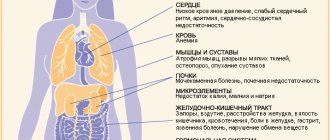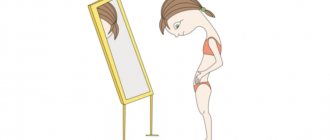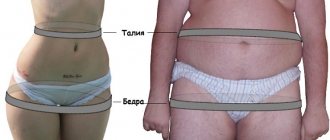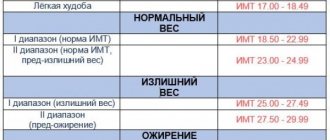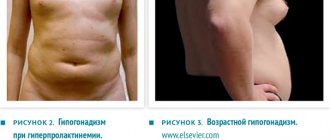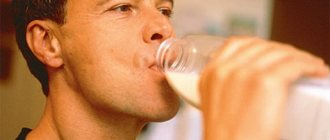Anorexia (anorexia nervosa) is a serious disease characterized by deliberate weight loss. Its symptoms remain unnoticed by others until some point. The disease usually occurs in teenage girls, but cases of male anorexia are increasing. And if your loved one has unnatural thinness without any physiological reasons, he pays a lot of attention to the calorie content of food, and is afraid of gaining weight, contact the Leto clinic. Consultation with a psychiatrist will help rule out a mental disorder, and if detected anorexia in men - start treatment in a timely manner and avoid serious complications.
How to suspect a disease
The most characteristic symptom is persistent weight loss. A man with anorexia does not stop losing weight, even when his body is exhausted. The fact is that the disease is based on psychopathological processes - a strong fear of gaining weight, changing the shape of the body. A young man takes several steps to lose weight. One of them is strict calorie restriction. At the same time, he avoids joint feasts with relatives, brings food to his room, hides there, throws out food, returning empty plates.
Then the increasing need to lose weight and the fear of gaining weight lead to the use of laxatives and provoking vomiting. The disease worsens, appetite disappears, and an obsessive thought about losing weight appears. Attempts by relatives to overcome poor nutrition are met with strong resistance and all kinds of denial of the problem. Despite significant exhaustion, patients often do not feel that they are in a serious condition and remain physically active.
A man with anorexia nervosa is not satisfied with his appearance , does not accept his body and continues to lose weight, even after reaching the target weight .
Causes
Speaking about the reasons for the development of anorexia syndrome in men, it is worth highlighting four types of the disease, which are caused by a cause-and-effect relationship:
- anorexia that occurs against the background of an underlying serious mental disorder - depression, paranoid state or schizophrenia. This variant of male anorexia is most common;
- a disorder that has developed as a result of a serious illness of internal organs - that is, the body concentrates its forces on fighting the underlying disease, while digestion of food takes a back seat - in this case, the disorder is not mental;
- anorexia nervosa - male representatives deliberately lose weight, limit themselves in nutrition or refuse food, and most often the most important complex is a hanging belly;
- the disease is a consequence of taking drugs that destroy mental health - antidepressants, drugs and even alcohol.
Eating disorders can be triggered by childhood fears, teenage crises, increased physical activity, increased stress at work, the desire to be popular and in demand due to a certain appearance, a career in professional sports, hobbies for a healthy lifestyle - diets, proper nutrition, vegetarianism, raw food diet and etc.
Types of anorexia
There are two types of anorexia in men:
- Restrictive (restrictive) - the patient limits food intake to very small quantities and uses laxatives irregularly.
- Bulimic-laxative - The patient usually limits the amount of food he eats, but he also regularly experiences periods of overeating or provocative vomiting and excessive use of laxatives and diuretics. The methods used usually lead to biochemical disturbances and organ dysfunction.
It should also be emphasized that the course of the disease is divided into: episodic, one-time, chronic, persistent and recurrent .
Symptoms of progression of anorexia in children:
The fact that the disease is progressing is evidenced by an almost complete refusal to eat, grueling exercise, taking laxatives and inducing vomiting, as well as disruption of the functioning of the body.
On average, only after a year the manifestations of anorexia become very noticeable externally. The child is exhausted, the face is sallow, pigmented, haggard, body temperature decreases, bedsores and ulcers appear. In advanced situations, death is possible.
In children, anorexia is both a psychological and physical disorder. To prevent the development of the disease, parents must treat their children with care and attention. The child should be closely monitored. It is especially important not to miss the symptoms of anorexia nervosa.
What can anorexia lead to in men?
A deficiency of vitamins and nutrients disrupts the normal functioning of internal organs . Men with anorexia often experience chronic fatigue, headaches, and problems with memory and concentration. Weight loss leads to anemia, atrophy of the cerebral cortex, which in turn causes irritability, neuropsychological disorders and seizures. As a result of the loss of adipose tissue and a significant decrease in the level of metabolism, thermoregulation processes are disrupted, and patients freeze.
With significant depletion of the body, hormonal imbalances occur, disorders of the digestive and cardiovascular systems, including atrophy of the heart muscle. Fuzz (lanugo) appears on the skin and nails become brittle. The most frightening thing is the emaciated body, often resembling a skeleton covered in skin. Severe exhaustion ends in death.
Modern methods of treatment
The diagnosis is made after a thorough examination of the patient. Modern methods provide an integrated approach to the treatment of anorexia. Psychotherapy – cognitive and behavioral – plays a major role in the process of getting rid of the disease. The goal of psychotherapeutic sessions is to help the patient get rid of negative thoughts, change behavior, and learn to perceive his body as it is.
Prevention of the disease should begin at a very young age. In this regard, everything matters - proper and nutritious nutrition, preparing delicious and varied dishes. It is also very important not to force a child to eat if he does not want, because this can sow the first seed of dislike for food as such.
The Rehab Family Center for the Treatment of Addictions and Eating Disorders is the only correct answer to the question “where to treat anorexia.” The clinic has an excellent reputation, which, however, is not surprising, because the best domestic specialists work here - psychiatrists, psychologists, psychotherapists.
The peculiarity of the Rehab Family clinic is the use of the “Recovery” program, which is unique: it includes such areas as an in-depth analysis of life situations that led to the onset of the disorder, and an individual approach to each patient. The clinic has created excellent conditions for treatment and recovery without the use of drugs harmful to the body.
If treatment is not started in time, the patient may develop dystrophy of internal organs, which can lead to death in the future.
Diagnosis of anorexia in honey
When making a diagnosis, our specialists are guided by clear criteria developed by psychiatric societies.
In doing so, we pay attention to:
- Intense fear of gaining weight despite being underweight.
- Failure to maintain weight appropriate for age and height.
- Impaired perception of one's own body (its weight and shape), underestimation of too low mass.
- Loss of libido, problems with erection.
- Body mass index BMI is below 17.5.
It is worth remembering that in addition to the main criteria, we also take into account many other factors. Particular attention is paid to identifying depressive disorders. Another important task for doctors is differentiating a mental disorder from sudden weight loss caused by some disease, physical or mental fatigue.
Symptoms of Anorexia Nervosa
- obsessive desire to lose weight regardless of weight; - fear of being overweight; — interest comes down only to weight loss issues; - eating turns into a ritual; - fanatical calorie counting; - regular refusal to eat; - desire for active physical activity; — aggressiveness; - selection of loose clothing; - tendency to solitude.
A person’s mental state is disturbed, apathy, depression, lack of concentration, sleep disturbance, obsession, constant dissatisfaction, and rapid mood changes develop.
The physiological state is disturbed, dizziness, growth of fuzz on the body, weakness, decreased sexual activity, a tendency to faint, and a constant feeling of cold appear.
Cost of services
| CONSULTATIONS OF SPECIALISTS | |
| Initial consultation with a psychiatrist (60 min.) | 6,000 rub. |
| Repeated consultation | 5,000 rub. |
| Consultation with a psychiatrist-narcologist (60 min.) | 5,000 rub. |
| Consultation with a psychologist | 3,500 rub. |
| Consultation with Gromova E.V. (50 minutes) | 12,000 rub. |
| PSYCHOTHERAPY | |
| Psychotherapy (session) | 7,000 rub. |
| Psychotherapy (5 sessions) | 30,000 rub. |
| Psychotherapy (10 sessions) | 60,000 rub. |
| Group psychotherapy (3-7 people) | 3,500 rub. |
| Psychotherapy session with E.V. Gromova (50 minutes) | 12,000 rub. |
| TREATMENT IN A HOSPITAL | |
| Ward for 4 persons | 10,000 rub./day |
| Ward for 3 persons | 13,000 rub./day |
| Ward 1 bed VIP | 23,000 rub./day |
| Individual post | 5,000 rub. |
| PETE | 15,000 rub./day |
This list does not contain all prices for services provided by our clinic. The full price list can be found on the “Prices” , or by calling: 8(969)060-93-93. Initial consultation is FREE!
Signs of anorexia
To determine if your loved one or loved one has anorexia, it is enough to pay attention to the following signs:
- appetite decreases;
- the patient becomes distracted and weak, dizziness may occur;
- staying on the toilet for a long time (this may indicate constipation or that the patient is trying to vomit food);
- regular pain in the abdominal area;
- the person is constantly freezing;
- hair becomes dull, brittle, and may fall out;
- a person may even faint;
- the appearance of thin hair on the skin of the face and whole body
- menstrual irregularities in women;
- excessive concentration on diets and weight loss.
Treatment of male anorexia
The earlier the disease is detected, the more successful and shorter the treatment will be, and the greater complications will be avoided. At the same time, all efforts of doctors will be aimed at changing the perception of oneself and restoring the body. In most cases, hospitalization will be required for conditions that do not yet pose a direct threat to life—isolation of a teenager or man from a toxic environment. Anorexic should change school or job and look for new friends.
Relatives should understand that forcing them to eat will not help. Treatment should be comprehensive and include both drug support and psychotherapy. Particular attention is paid to teaching the principles of rational nutrition. There is no one-size-fits-all solution. It takes a long time for a person to return to life.
Unfortunately, some patients seek help too late. Then doctors can only relieve the pain and prolong the patient’s life.
But even after recovery, the patient must undergo regular medical examinations and for the rest of his life avoid contact with people who had a negative influence on him.
Want to know more? Do you need to consult about the condition of a loved one? Just dial 8(969)060-93-93!
Treatment
Comprehensive treatment of anorexia involves the use of a variety of techniques. Not all of them show high effectiveness, but with careful adherence to medical instructions and a positive attitude of the patient himself, recovery occurs (albeit not as quickly as we would like). This is a rather complex disease, so at the first symptoms you should immediately contact a psychotherapist. Only they can pull the patient out of the hole into which he has fallen.
Psychotherapy
- Visualization of the final result: the patient is told in detail about the consequences of anorexia.
- Cognitive restructuring: combating negative thoughts and obsessions.
- Controlling your own behavior.
- Correction of distorted consciousness.
- Monitoring: the patient records his eating behavior in full detail, on the basis of which conclusions are drawn and errors are eliminated.
- Increased self-esteem.
- Resolving family conflicts (in the treatment of anorexia in children and adolescents).
Nutritional rehabilitation
- Exercise therapy for the formation of a beautiful body (the purpose of the exercises is to build muscle mass).
- Bed rest.
- Diet therapy.
- Creating motivation for recovery.
- Emotional and physical support from family and friends.
Drugs
- Vitamin complexes.
- Neuroleptics.
- Selected vitamins and microelements: folic and ascorbic acid, B12, iron, zinc, magnesium, calcium, potassium.
- Drugs that increase appetite: Elenium, Frenolone, Pernexin, Peritol, anabolic steroids like Primobolan.
- Tablets for normalizing metabolism: Polyamine, Berpamin.
- Antidepressants: Zoloft, Coaxin, Ludiomil, Paxil, Fevarin, Fluoxetine, Chlorpromazine, Cipralex, Eglonil.
Folk remedies
With the permission of your doctor, you can use various folk remedies at home to restore normal appetite. However, you need to be extremely careful with them. Some herbs are too aggressive for various organs and systems that are already affected. Therefore, watch for contraindications for each such recipe.
Calming (drink before bedtime):
- valerian;
- nettle;
- Melissa;
- mint;
- dandelion.
Appetite stimulants (drink half an hour before each meal):
- calamus;
- St. John's wort;
- centaury;
- mint;
- sagebrush.
Treatment must be comprehensive. Even well-proven psychotherapy does not always work and give the desired effect without the same antidepressants (for the nervous form of the disease).
It is a fact. Experts say that it is impossible to cope with anorexia on your own. Patients, even if they understand that not everything is all right with them, cannot force themselves to eat normally. This is due to the fact that their ideas about food and weight are too distorted and require professional correction.
Treatment options
The main task in the treatment of AN is the devaluation of the idea, obeying which anorexics decided to abandon the rules of rational nutrition.
There are three main psychotherapeutic methods used to treat anorexia:
- Cognitive psychotherapy . Patients are taught the ability to deeply analyze their own emotions and behavioral reactions in order to identify erroneous beliefs or views. With successful therapy, anorexics themselves realize the danger of their behavior and abandon it.
- Behavioral psychotherapy . Patients are taught correct behavioral skills that gradually destroy previous, erroneous behavioral patterns. Often used in conjunction with cognitive therapy.
- Body-oriented psychotherapy . The idea of the method assumes that bodily disorders are associated with certain character traits, and therefore direct influence on the body (massage, exercises, etc.), supplemented by psychoanalytic work, will help eliminate personality disorders.
- Family psychotherapy . It is used for minor anorexics and involves ideological and behavioral correction by changing family relationships.
After successful devaluation of the obsession, a recovery stage follows, during which those specific disorders that arose in the body due to regular malnutrition are eliminated.
Causes
As mentioned earlier, the main cause of AN is a certain obsession that takes possession of a person’s consciousness and becomes the dominant motivational factor, crowding out all other desires, goals and intentions. Certain factors of a psychological or social nature contribute to the emergence of this obsession:
- The desire to get rid of an inferiority complex or low self-esteem by improving appearance (giving a slim figure).
- A somatic consequence of experienced neuropsychological stress or advanced clinical depression.
- Obsession with beauty standards cultivated in certain circles of society (the thinner, the more attractive).
- Reaction to an unfavorable family environment (father is a violent alcoholic).
- Development of obesophobia (fear of excess weight) against the background of negative experience of obesity in one of the close relatives or friends.
Somewhat less frequently, AN occurs as a result of a passion for therapeutic fasting techniques, practiced for the purpose of treating a specific disease or for “general wellness.”


